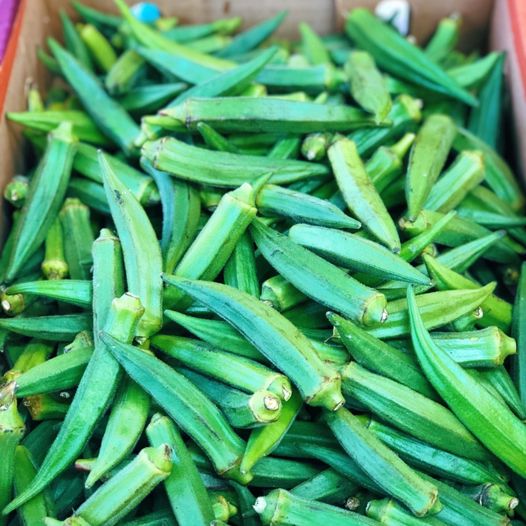23 Things You Should Know About Okra
Okra, sometimes referred to as “gumbo” or “lady’s finger,” is a popular and adaptable vegetable eaten all across the world. These are 23 amazing okra facts that you should be aware of, regardless of your level of experience with this green vegetable.
Benefits to Nutrition
- Rich in Nutrients: Okra is a great source of B vitamins, as well as vitamins A, C, and K.
- High in Fiber: It has a fair quantity of dietary fiber, which improves gut health and aids in digestion.
- Low in Calories: Okra is an excellent addition to a balanced diet because it is low in calories.
- Antioxidants: Helps combat oxidative stress by containing antioxidants like quercetin and catechins.
- Provides a sufficient supply of calcium, which promotes the health of bones.
Advantages for Health
- Blood Sugar Regulation: Okra could assist in maintaining blood because of its fiber content, sugar levels.
- Heart Health: The fiber and antioxidants in it support heart health.
- Anti-Inflammatory Properties: Assists in lowering bodily inflammation.Okra’s vitamin C helps to strengthen the immune system.
- Hydration: Okra helps with hydration because it contains over 90% water.Okra is a versatile ingredient in cooking that can be pickled, fried, grilled, or boiled.
- Thickening Agent: Because of its inherent thickening qualities, it is frequently used in stews and soups, such as gumbo.
- Global Cuisine: Popular throughout the Middle East, Africa, and the South of the United States.
- Pairing: Goes nicely with garlic, onions, and tomatoes.
- Warm Climate Okra Growing: This plant does well in warm weather and is rather simple to cultivate.
- Quic:k-Growing Within 50–60 days of sowing, harvesting is possible. Requires a soil that is rich and well-drained.
- Watering: Needs regular irrigation, particularly in arid periods.
Interesting Facts
- Historical Use: During the American Civil War, okra seeds were used in place of coffee.
- Botanical Family: Cotton and hibiscus are members of the mallow family, which this plant belongs to.
- Mucilage: Mucilage is the slimy material found in okra that has a number of culinary and therapeutic applications.
- Pollination: Bees and other pollinators can be drawn to okra blossoms, which self-pollinate.
- Cultural Significance: Okra is seen as a sign of health and prosperity in several civilizations.
In summary, okra is an amazing vegetable that has a wide range of health advantages, a variety of culinary applications, and intriguing historical and cultural importance. Okra is a wholesome and adaptable complement to any dish, whether it is consumed raw or added to a robust gumbo. Having gained additional knowledge regarding okra, you can recognize its various benefits and even come up with fresh ways to include it in your diet. Cheers to cooking and gardening!
